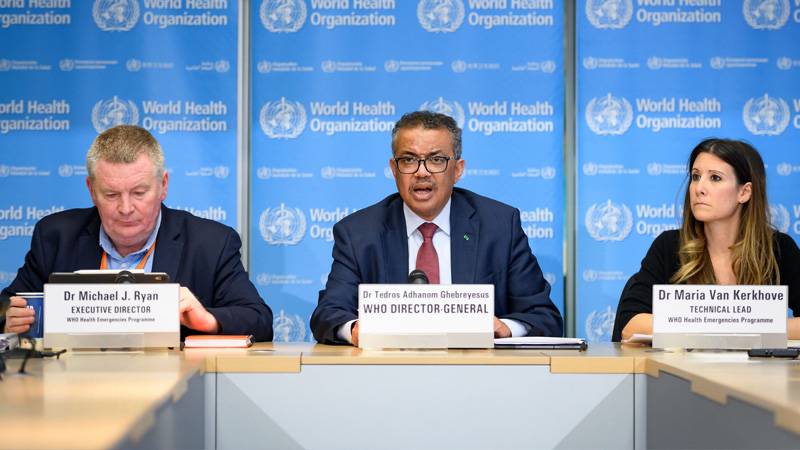The global health body said it expected to reach the grim milestone “within the next week”.
The death toll from the disease from around the world has surpassed 470,000.
Dr Tedros Adhanom Ghebreyesus, WHO director-general, told a press briefing in Geneva: “More than 9.1 million cases of Covid-19 have now been reported to WHO, and more than 470,000 deaths.
“In the first month of this outbreak, less than 10,000 cases were reported to WHO. In the last month, almost four million cases have been reported.
“We expect to reach a total of 10 million cases within the next week.
“This is a sober reminder that even as we continue R&D (research and development) into Vaccines and therapeutics, we have an urgent responsibility to do everything we can with the tools we have now to suppress transmission and save lives.”
Countries in Central and South America are “still suffering sustained community transmission”, WHO officials said as they warned that the pandemic in the Americas “has not yet peaked”.
Meanwhile, when asked about the UK’s easing of lockdown measures, Dr Mike Ryan, executive director of the WHO’s Health Emergencies programme, said he believed that British surveillance systems were “capable of understanding where the disease is”.
Dr Ryan said: “The United Kingdom has been very much guided by a very steady, slow, stepwise exit from Lockdown conditions.
“Testing in the UK has increased. I believe the surveillance system is capable of understanding where the disease is.”
But he added: “I think the question we asked now for many countries is: Is the public health system not just doing testing, but is it actually detecting cases as soon as possible after those cases become unwell? Are we immediately identifying their contacts? Are we in a position to quarantine contacts? And are the contacts supported in that quarantine?
“I think this is a question that’s facing many countries now because countries have fought hard including the United Kingdom, they have fought very hard and populations have sacrificed a lot to drive transmission down.
“It’s taken time. It’s taken its toll on people personally, it’s taken its toll on communities, it’s taken its toll on the economy.”
Dr Ryan continued: “There are no silver bullets, there are no easy answers and each government, including the UK, needs to examine itself (at) every level to see are we capable of doing that? Is every part of the system able to keep its promise?
“The UK has taken a stepwise approach, UK is listening to science. Science is still driving decision-making.
“And yes, (in) every government (at) every level, there are setbacks, there are surprises, but the stepwise approach in the UK is the right way to go. And we just hope that all systems, including the U.K., put in place the necessary surveillance to support this going forward.”

